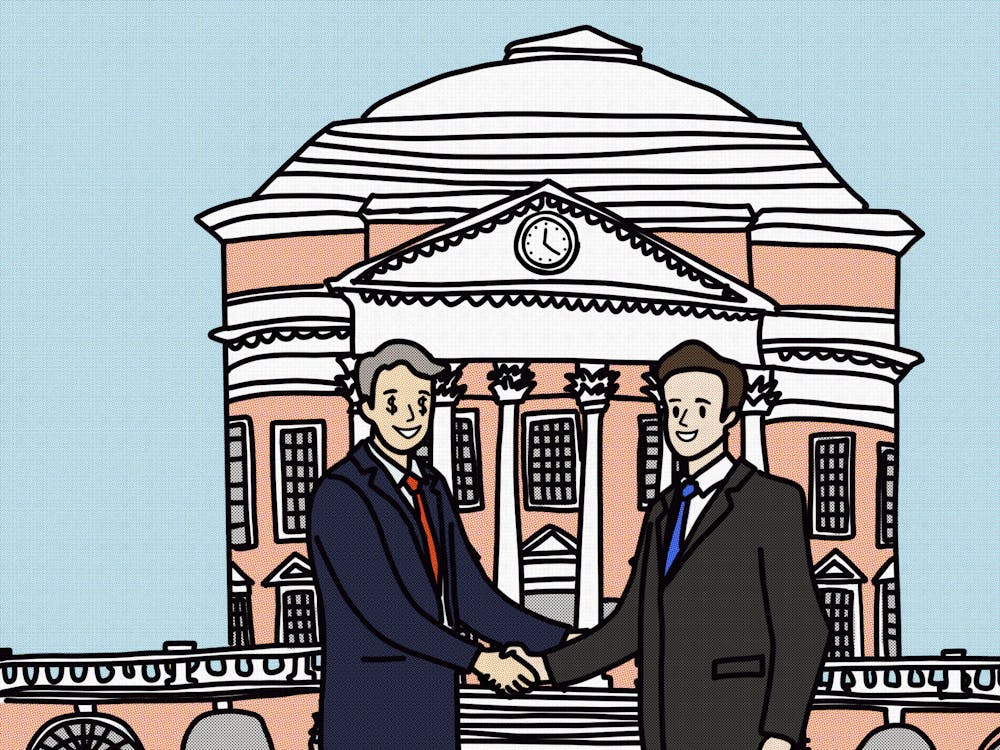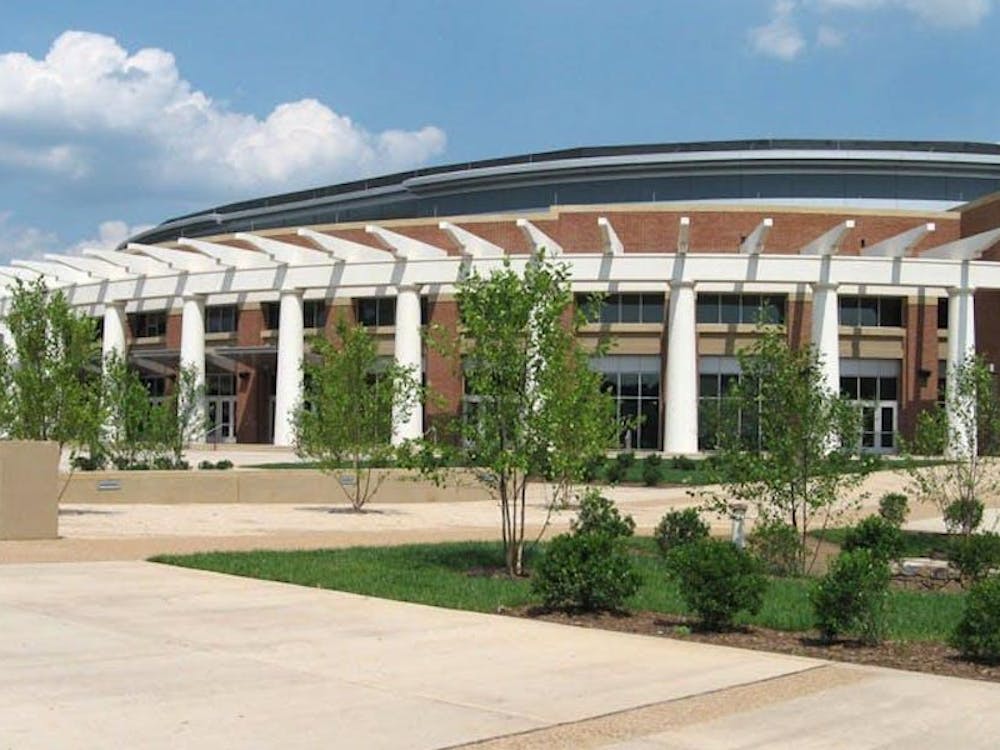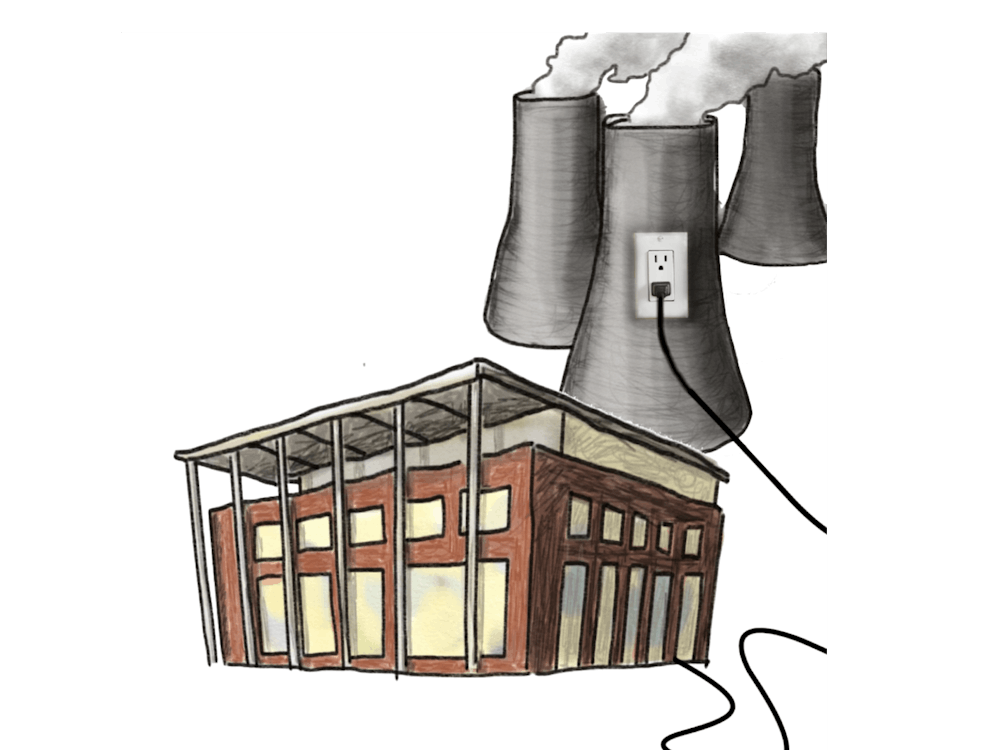On October 3, 2013 at around 3:30 p.m., I was picked up during my class at Wilson Hall by two police officers. I found out that I had been charged with felony rape and abduction by an ex-girlfriend who claimed this event happened sometime between March 1 to June 1 of 2012 in a different part of Virginia without specifying an exact day or month. I was promptly arrested, put into the cruiser, and transported to the Charlottesville Regional Jail where I would spend four nights awaiting my bond hearing.
During my second day in jail at 12:40 p.m., I received a letter from Dean Groves.
I had been suspended from the University because, in his words, he was abiding to their responsibility to “maintain a safe and secure environment for all members of the community.” It said that I could not be allowed on Grounds without special permission and that I would be held on trial by the University Judiciary Committee even though the University had not even conducted a proper investigation of the matter themselves.
Upon being bailed out, I worked closely with my lawyer to prepare my defense. There was no telling how long the case could drag on for. The trial could be scheduled sometime in the spring of 2014 and I did not want to be gone from the University for that long.
I appealed to the University to reinstate me during the duration of my legal case on Tuesday, November 12th, 2013. I prepared a case that included documents that supported my innocence, about a dozen character letters, and six witnesses. I was brought forth before the University’s triumvirate of Vice-President Patricia M. Lampkin, Dean of Students Allen Groves, and Susan Davis, who is the Associate Vice President of Student Affairs.
I presented my documents, witnesses, and arguments before them. I answered their questions and after an hour of arguing for my reinstatement, Dean Groves asked whether there was any information I was not revealing, since it would be unusual for charges to be filed if there was not some kind of evidence against me.
There was the suspicion that I must be hiding something or perhaps that the prosecution had a stronger case than I expected. There was the idea that the police acted on good faith and would not go forward on an unsubstantiated accusation. There was the question of why would someone make a false accusation? Who would be stupid enough to put themselves in a situation where they would perjure themselves?
The charges were subsequently dropped three days later because the complainant’s statements at the preliminary hearing were inconsistent with facts of the case previously established during the investigation.
After the charges were dropped, the University ended my suspension, and I returned to school on November 17th. I rejoined my activities immediately and got back into the swing of things.
The administration expressed their surprise and thoughts about what happened to me. My return to the University was not anticipated, nor was it expected to happen so quickly. It was expected I would plead guilty to a lesser charge because of the weight of the allegations. I am one of few students who has successfully resumed my life at the University after being charged of serious felonies.
I am not honored for holding this position by any means.
I was told that it was unfortunate that this happened and that the system is imperfect, but that ultimately a semester isn’t really that much time in the grand scale of things. I lost thousands of dollars in legal fees alone, I lost my fall semester, and I had to bear the anguish of spending five nights and six days in a jail cell. In that one semester, I was unable to salvage any credits and lost opportunities to enhance my social life at the University. Upon my return, I was asked by my peers where I was, what had happened to me, and why were police escorting me out of Wilson Hall that day. I never had a good explanation for anyone.
The administration told me that there were lessons learned from my events. It was a sobering reality to them that people do get falsely accused and that we do not live in a perfect world. The police aren’t perfect, the university isn’t perfect, the court system isn’t perfect, and I am not perfect, which all contributed to the storm of events I was caught in. Along with recent incidents at the University and in a changing world, policy regarding criminal charges has transitioned to an extreme where it involves action first and questions later. Will they suspend the next student based on an accusation as opposed to a ruling by the court? There is no clear consensus on the administration’s part on what to do if this happens again to another student. I would hope that from my example, that there would be a thorough investigation on the university’s part to look at the facts before jumping to a decision that could potentially impact a student’s life in negative ways.
The administration told me that they must maintain a safe environment for all their students, but where was the compelling evidence that I would compromise that environment? An accusation and a conviction are not synonymous, and the University should be more sensitive and thoughtful in potential future situations when something of this nature occurs. It would be best for the University to find a happy medium where they do not ignore complaints without jeopardizing the presumption of innocence that we as human beings should be granted until the courts come to a verdict. The stakes are high and it is unreasonable to put an innocent person at risk of having their life disrupted for something they never did. I share my anecdote in hopes that our rights as students of the University are observed when we are in our darkest hour and at our most vulnerable.
-Falsely Accused and Truly Dismayed




